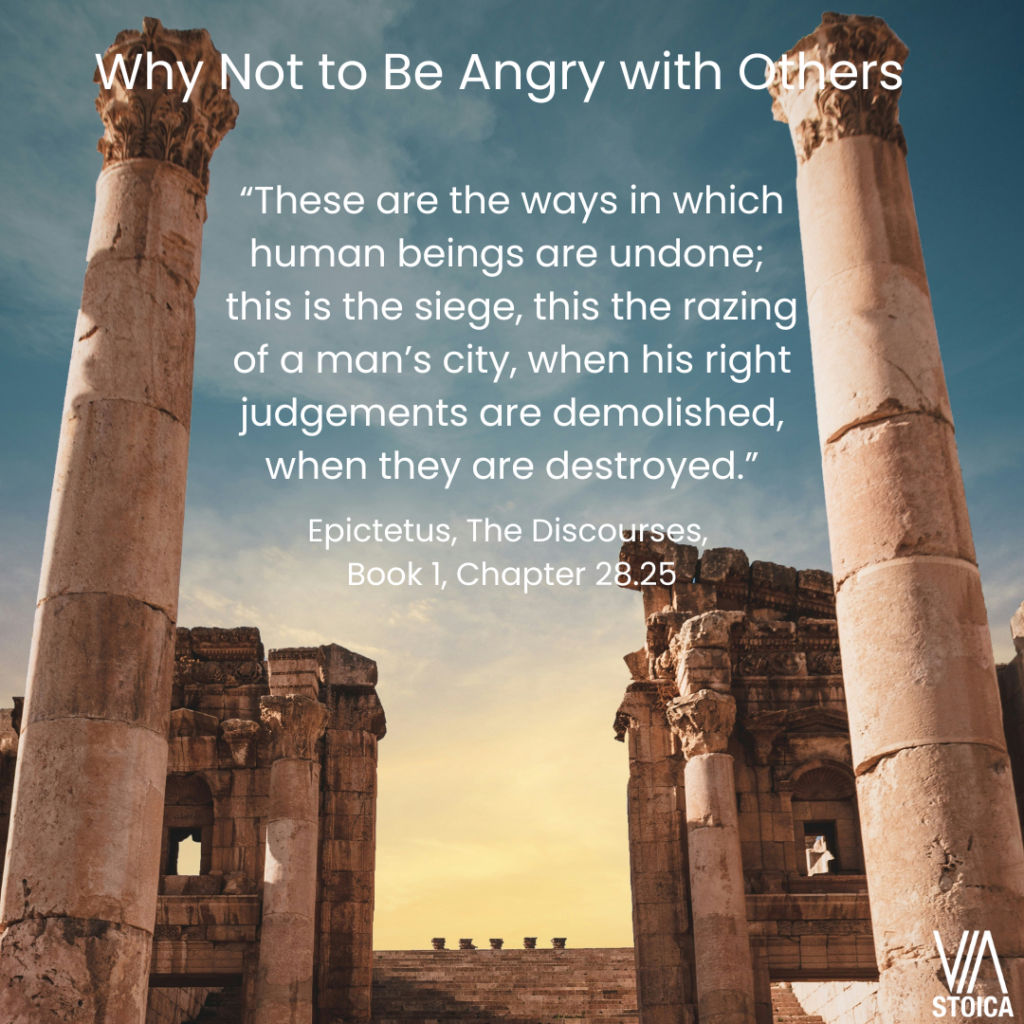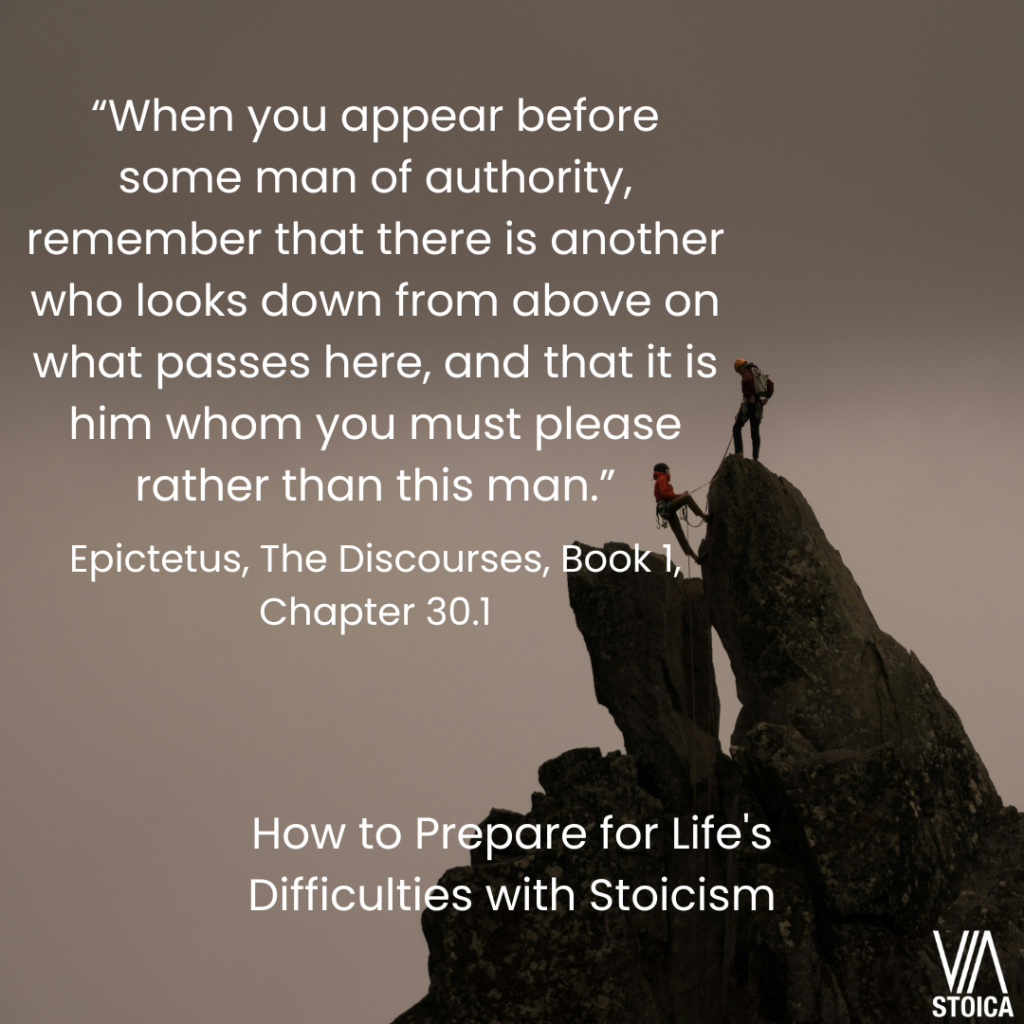By Arrian (Lucius Flavius Arrianus)

This summary of the discourses by Epictetus goes beyond a simple view of the books themselves. Below you will find a summary and interpretation of each of the discourses. This is a work in progress, but we will be adding them as time goes on. First, we will look at what the books are and then it’s importance to us now.
Would you like to learn more about Stoicism? Check out this post here: What is Stoicism?
Epictetus never wrote anything himself. The fact that we can read his teachings and thoughts, we all owe to one of his students: Arian. These Discourses of Epictetus are his notes while he was studying at Epictetus’s school in Nicopolis. What we can read are parts of the lessons he witnessed. These are more informal gatherings where he would discuss specific topics and answer questions. Another part would have been more aimed at the three parts of, Ethics, Physics, and Logic.
The Emperor’s copy
Originally, there would have been eight books, but only half of them survived. We can see some of the missing books being referred to in the Meditations by Marcus Aurelius. The Stoic Emperor was given a copy of Arrian’s notes by his Stoic teacher, Rusticus. It is more than likely that Rusticus knew Arrian and was able to get a copy this way. The discourses of Epictetus are of great importance in learning some of the key concepts of Stoicism. Some elements keep coming back, as Epictetus uses them in many different conversations. Concepts like what we control and how our wants and desires influence us.
“We might be fluent in the classroom but drag us out into practice and we’re miserably shipwrecked.”
Epictetus, The Discourses, Book 2, Chapter 16.20 (Paraphrased)
A key message throughout the discourses of Epictetus is the one of putting these teachings into practice. The above quote is found often online. And while it isn’t a direct quote from the book, the paraphrased version does capture the essence of that passage. Let’s not become the sophist, as Epictetus reminds us, but let’s use the philosophy for its purpose: To live well.
The summaries of the Discourses of Epictetus
The summaries of the discourses of Epictetus offer you the key concepts of the discourses and a modern interpretation. You can find the links to each summary below. While it is recommended to read the discourses themselves, we hope that this resource will give you some added benefits. We try to add some practical application to the teachings by Epictetus. This way you can use them to improve your life and have an online version at hand. While the full discourses are not here online, you will be able to find many useful quotes mentioned.
For a full list of all the quotes of Epictetus used on Via Stoica, go to the page Epictetus Quotes
The translation I’m using is the Everyman edition, The Discourses, The Handbook, Fragments. Edited by Christopher Gill, translation revised by Robin Hard, based on the translation of Elizabeth Carter.
The Discourses of Epictetus

Book 1
Chapter 1: On What Is In Our Power, And What Is Not
Post: What is Our Reasoning Faculty
Chapter 2: How Is One to Preserve One’s True Character in Everything?
Post: How to Respect Your Character
Chapter 3: What Should We Conclude From The Principle That God Is The Father of Mankind?

Post: What is the Stoic God
Chapter 4: On Progress
Post: How to Make Progress Like a Stoic
Chapter 5: Against the Academics
Post: How to Save the Soul
Chapter 6: On Providence
Post: How to View the World: The Grateful Observer
Chapter 7: On The Use Of Arguments Resting On Equivocations, And Hypothetical Arguments, And The Like

Post: How to Find the truth
Chapter 8: That For The Uneducated Our Reasoning Capacities Are Not Free Of Danger
Post: Why We Need Virtue to Make Progress
Chapter 9: What We Should Conclude From the Doctrine of Our Kinship To God
Post: What We Belong To
Chapter 10: To Those Who Have Devoted Their Efforts To Advancement At Rome
The Discourses of Epictetus – Chapters 11 – 20
Post: What We Should Devote Our Time To
Chapter 11: On Family Affection
Post: On Our Judgment

Chapter 12: On Contentment
Post: How To Be Content
Chapter 13: How Can We Act In Everything In A Manner Acceptable To The Gods
Post: How To Treat Others
Chapter 14: That The Deity Watches Over Us All
Post: How It Is All Connected
Chapter 15: What Does Philosophy Promise?
Post: What Does Philosophy Promise
Chapter 16: On Providence
Post: What We Are Born For

Chapter 17: That Logic Is Indispensable
Post: How to Follow Reason
Chapter 18: That We Should Not Be Angry With Those Who Fall Into Error
Post: How to Be Invincible
Chapter 19: How Should We Behave Towards Tyrants
Post: How to Achieve Stoic Freedom
Chapter 20: On How Reason Is Able To Contemplate Itself
Post: How Can Reason Contemplate Itself
The Discourses of Epictetus – Chapters 21- 30
Chapter 21: Those Who Wish To Be Admired
Post: What is Admiration: A False Promise to Happiness
Chapter 22: On Preconceptions
Post: How to Align Preconceptions with Nature: Where Does the Good Lie

Chapter 23: Against Epicurus
Post: Is the Wise Person a Social Being or Not?
Chapter 24: How Should We Struggle Against Difficulties?
Post: How to Deal With Difficulties: Remember What Is Your Own
Chapter 25: On the Same Subject
Post: What to Worry about: A Good or Bad Life is Your Choice
Chapter 26: What Is The Law Of Life?
Post: What is the Law of Life? The Philosopher’s Way
Chapter 27: In How Many Ways Do Impression Arise, And What Should We Have At Hand To Help Us In Dealing With Them
Post: Understanding Stoic Impressions: How Epictetus Explains Our Perception of Reality

Chapter 28: That We Should Not Be Angry With Others; And What Things Are Great, And What Things Small, Amongst Men
Post: Why not be angry with others: What is Great and Small in Life?
Chapter 29: On Steadfastness
Post: Where is the Good Life Found: Our Sphere of Choice
Chapter 30: What Should We Have At Hand In Difficult Circumstances?